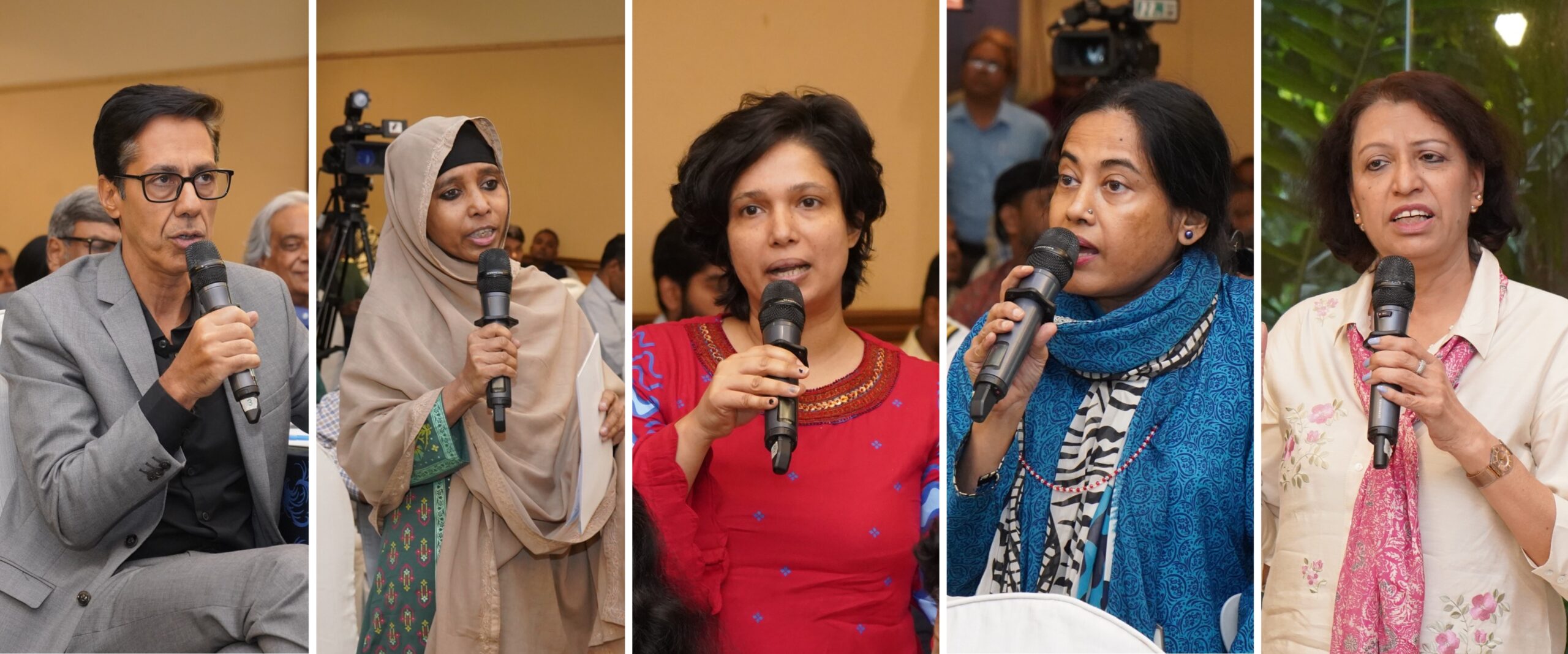
As Bangladesh prepares its first national budget under the Interim Government following the July 2024 uprising, stakeholders from multifaceted sectors gathered together to reflect on urgent reform priorities at a multistakeholder forum titled “Bangladesh Economy 2025–26: Policy Reforms and National Budget.” On 19 May 2025, the Citizens’ Platform for SDGs, Bangladesh with Secretariat at the Centre for Policy Dialogue (CPD) organised the forum to bring together diverse voices ahead of the FY2025–26 budget, aiming to assess the country’s recent economic performance, review the reform agendas proposed in the White Paper and Task Force reports, and identify key fiscal priorities. Special attention was given to enhancing public expenditure efficiency and addressing institutional weaknesses, in alignment with the Leave No One Behind (LNOB) principle of the SDGs, with the aim of incorporating the perspectives of marginalised communities.
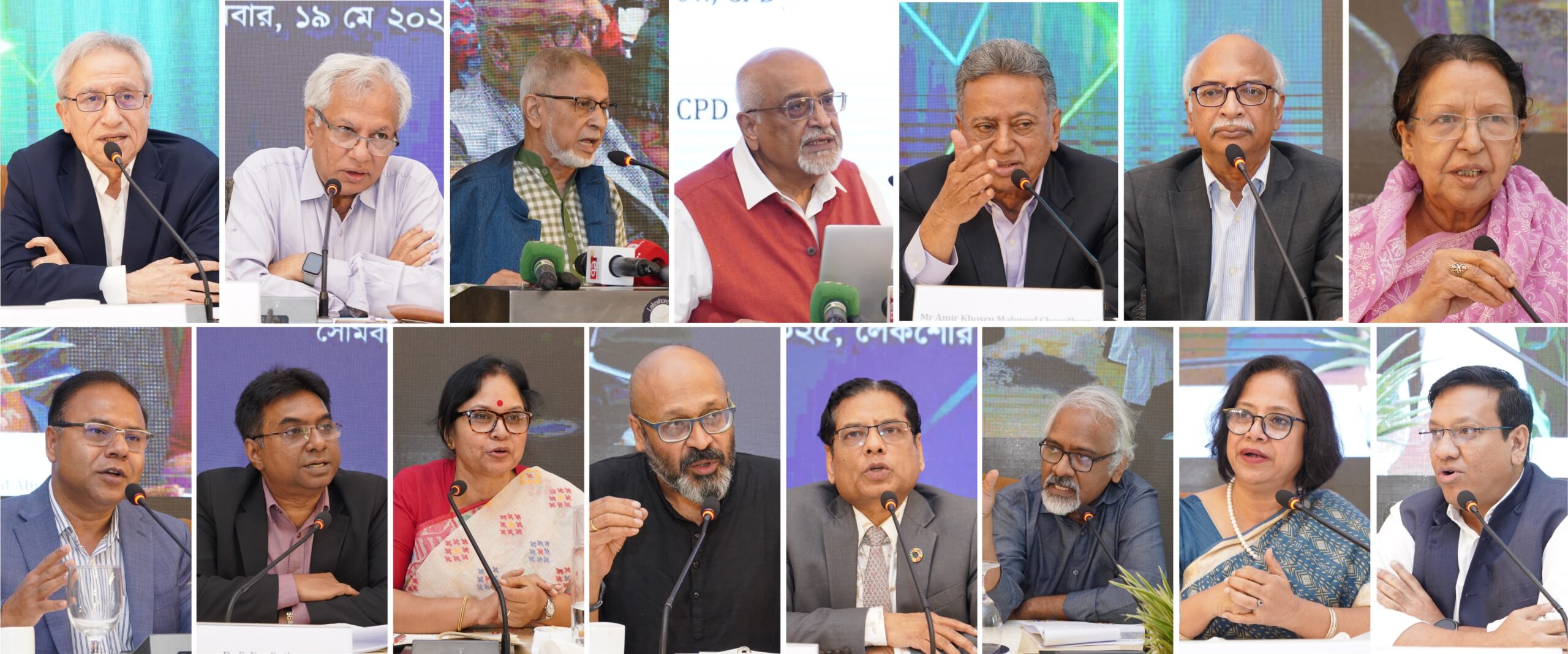
Dr Debapriya Bhattacharya, Convenor, Citizen’s Platform and Distinguished Fellow, Centre for Policy Dialogue (CPD) delivered the keynote address, Mr Amir Khosru Mahmud Chowdhury, Member, National Standing Committee, Bangladesh Nationalist Party (BNP) and Mr Anisuzzaman Chowdhury, Special Assistant to the Chief Adviser, Finance Division, Ministry of Finance, were special guests. The panel of commentators included members of the White Paper Committee 2024. The forum highlighted the broader political economy context and the implications of budgetary decisions on Bangladesh’s democratic transition.
Dr Debapriya Bhattacharya highlighted the absence of meaningful economic reforms and persistent anti-equity biases in Bangladesh’s economic management during the event. He argued that without economic stability, other reforms are unlikely to hold. He pointed out three major deficits shaping the FY26 budget — lack of coordination, transparency and inclusivity, noting the limited public engagement and minimal outreach beyond Dhaka. He also critiqued the separation of tax policy from administration, calling it necessary but poorly executed, with limited consultation and increased administrative control. The ongoing NBR officials’ strike, he warned, may further undermine revenue collection.
Following the keynote address, remarks were delivered by a panel of commentators consisting of members of the White Paper Committee 2024 and the Lead of the White Paper’s Research and Technical Support Team.
Professor Sharmind Neelormi, Department of Economics, Jahangirnagar University, stressed the urgent need to close data gaps in education and called for greater investment in the care economy to support inclusive development.
Dr Imran Matin, Executive Director, BRAC Institute of Governance and Development (BIGD) highlighted issues in governance and poverty, noting that the previous incomplete poverty narrative has evolved into an invisible one. He emphasised the need for an investment-oriented social protection system.
Professor Mustafizur Rahman, Core Group Member, Citizen’s Platform and Distinguished Fellow, CPD, highlighted the need for increasing institutional capability to bring back the money that has gone out of the country.
Dr Tasneem Arefa Siddiqui expects to see an increased budget allocation for Bangladeshi citizens living abroad, given their role in the July-August movement and for enhanced funding for Teacher’s Training Colleges (TTCs).
Dr A K Enamul Haque, Director General, Bangladesh Institute of Development Studies (BIDS), pointed out that despite 3% economic growth, employment growth has remained stagnant, and the rise in the number of doctors has not been matched by a proportional increase in nurses.
Dr M Tamim, Vice Chancellor, Independent University, Bangladesh (IUB), emphasised the need to focus on electricity distribution laws and their effective implementation.
Dr Selim Raihan, Executive Director of South Asian Network on Economic Modelling (SANEM), underscored the urgent need for political commitment to reforms, noting that policy paralysis persists with little to no implementation.
Dr Mohammad Abu Eusuf, Department of Development Studies, University of Dhaka, expressed expectations for a more realistic budget, noting that those previously critical of the government are now the ones preparing it.
Ms Ferdaus Ara Begum, CEO, Business Initiative Leading Development (BUILD), expressed hopes for budget measures that would improve the country’s investment climate.
Dr Kazi Iqbal, Research Director, Bangladesh Institute of Development Studies (BIDS), emphasised that the current labour market outlook is not promising and called for budget clarity on addressing these challenges.
Mr Towfiqul Islam Khan, Lead, Research and Technical Support Team, White Paper and Senior Research Fellow, CPD, highlighted the need to recognise that budget performance may not show improvement if actual data is used, given the previous government’s tendency to inflate figures.
Mr Anisuzzaman Chowdhury, Special Assistant to the Chief Adviser, in his speech as Special Guest reflected on Bangladesh’s transformation from a post-war “basket case” to its current economic standing, acknowledging the country’s journey through periods of turbulence and uncertainty.
Special Guest Mr Amir Khosru Mahmud Chowdhury, Member, National Standing Committee, BNP concluded the session, stressing the fact that we need to urgently democratise the economy. He noted that while initiatives like investment summits are beneficial, the country’s uncertain situation demands a greater focus on holding the much-awaited election.
In the open floor discussion, representatives of various sectors and communities expressed their views regarding the budget scenario. The need for targeted budget allocations in the labour market, education and health, alongside measures to boost private sector investment was emphasised in the discussion.


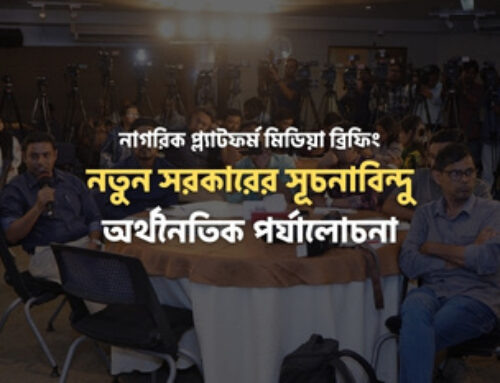
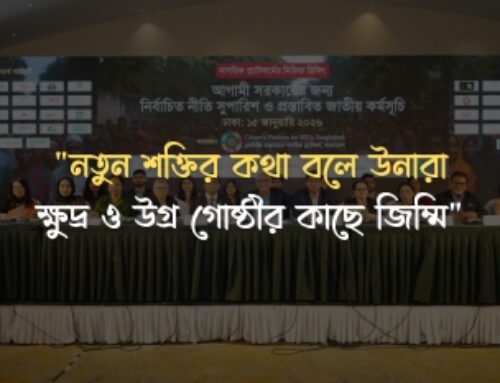
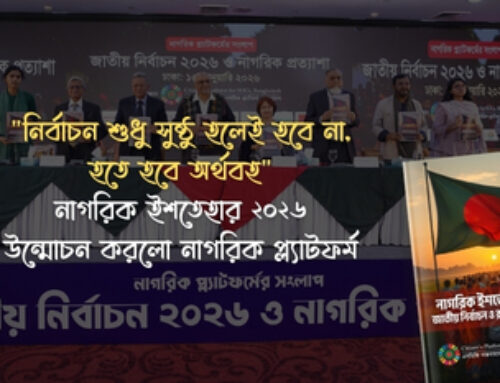
Leave A Comment